Not just New Year: What holidays do Russians celebrate in January?
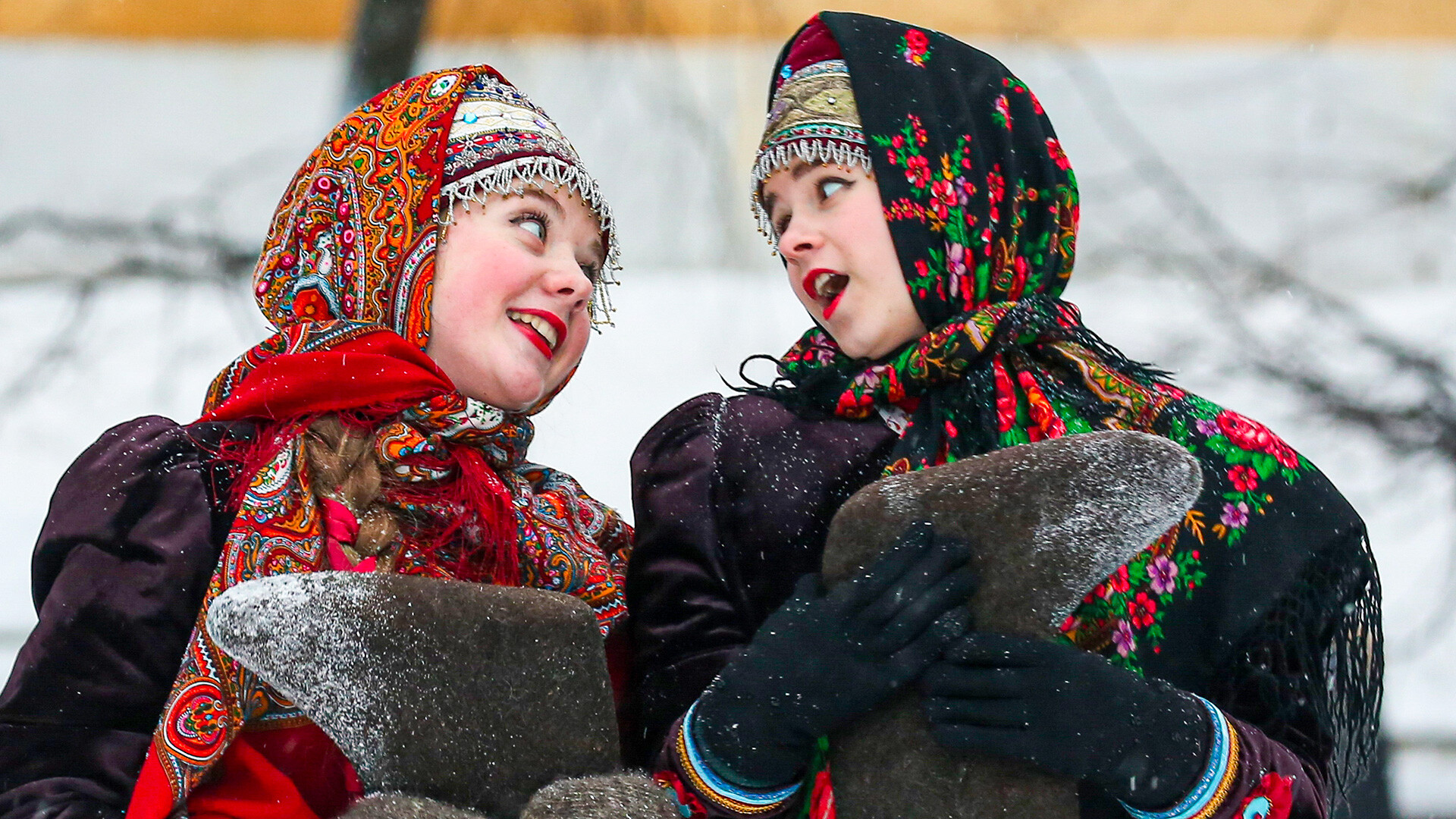
January is one of the most beloved months for Russians, because it always begins with eight or nine days off work! But, January has several more festive occasions.
January 7 – Christmas
Orthodox Christian Russians begin celebrating Christmas on January 6 – Christmas Eve. This is the last and the strictest day of the 40-day Nativity Fast: the Church prescribes to abstain from food, only ‘sochivo’ is allowed – wheat grains, boiled with honey or dried fruit (that’s where the Russian name for Christmas Eve comes from – ‘sochelnik’). January 6 begins with a series of Christmas religious services.
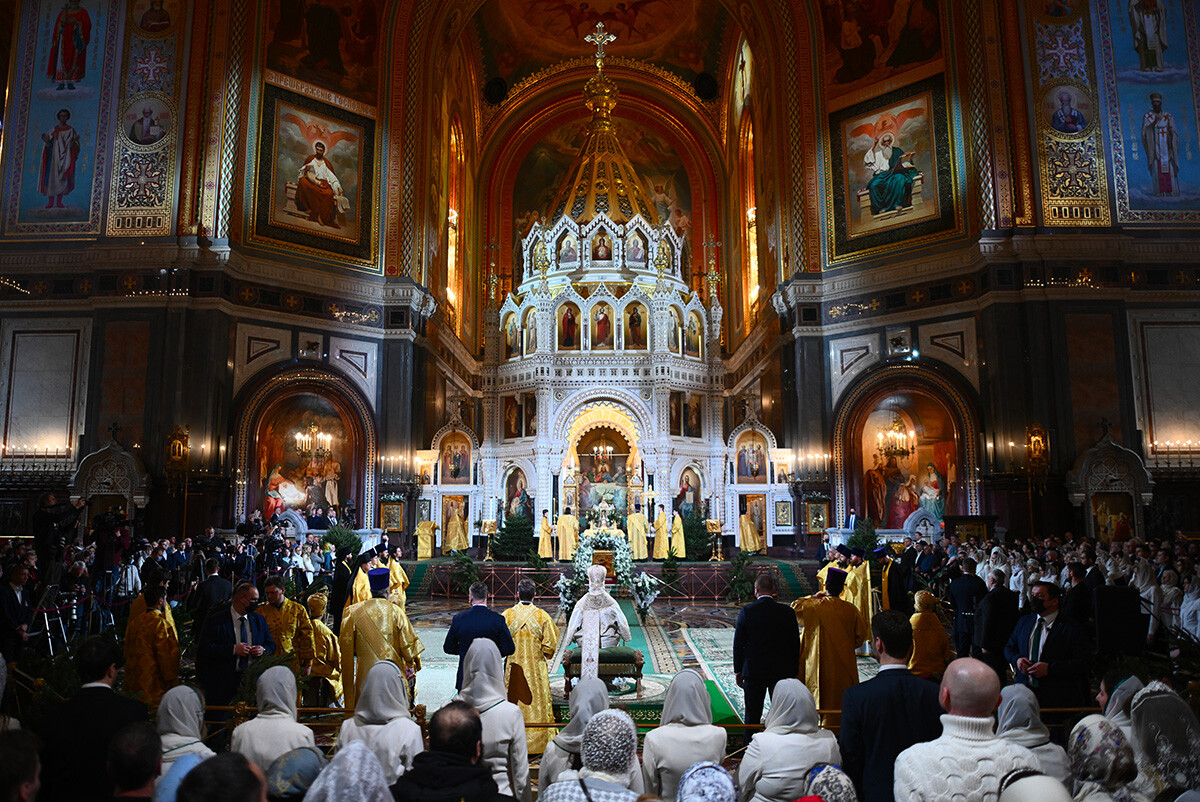 Patriarch Kirill of Moscow and All Russia during the Christmas service at Christ the Savior Cathedral in Moscow 2023
Patriarch Kirill of Moscow and All Russia during the Christmas service at Christ the Savior Cathedral in Moscow 2023
Until the 1917 Bolshevik Revolution, Christmas in Russia was celebrated on December 25 – according to the Julian calendar. In 1918, the country transitioned to the Gregorian calendar and the holiday “moved” 13 days ahead for the country’s citizens.
Meanwhile, the Russian Orthodox Church still “lives” in accordance with the old style, meaning the Julian calendar. The Russian Orthodox Church’s website always lists both dates of the current day – the new date, in accordance with the Gregorian calendar and the old date, in accordance with the Julian calendar. As such, the ‘Gregorian’ January 7 is the ‘Julian’ December 25.
Until 1929, January 7 was a day off work in the Soviet Union. The tradition of having this day off was only restored after the collapse of the USSR in 1991.
From January 6 to January 18 – Svyatki
Svyatki are the twelve days between Christmas and the holiday of the Baptism of Jesus. They begin on Russian Christmas Eve and end on Baptism Eve.
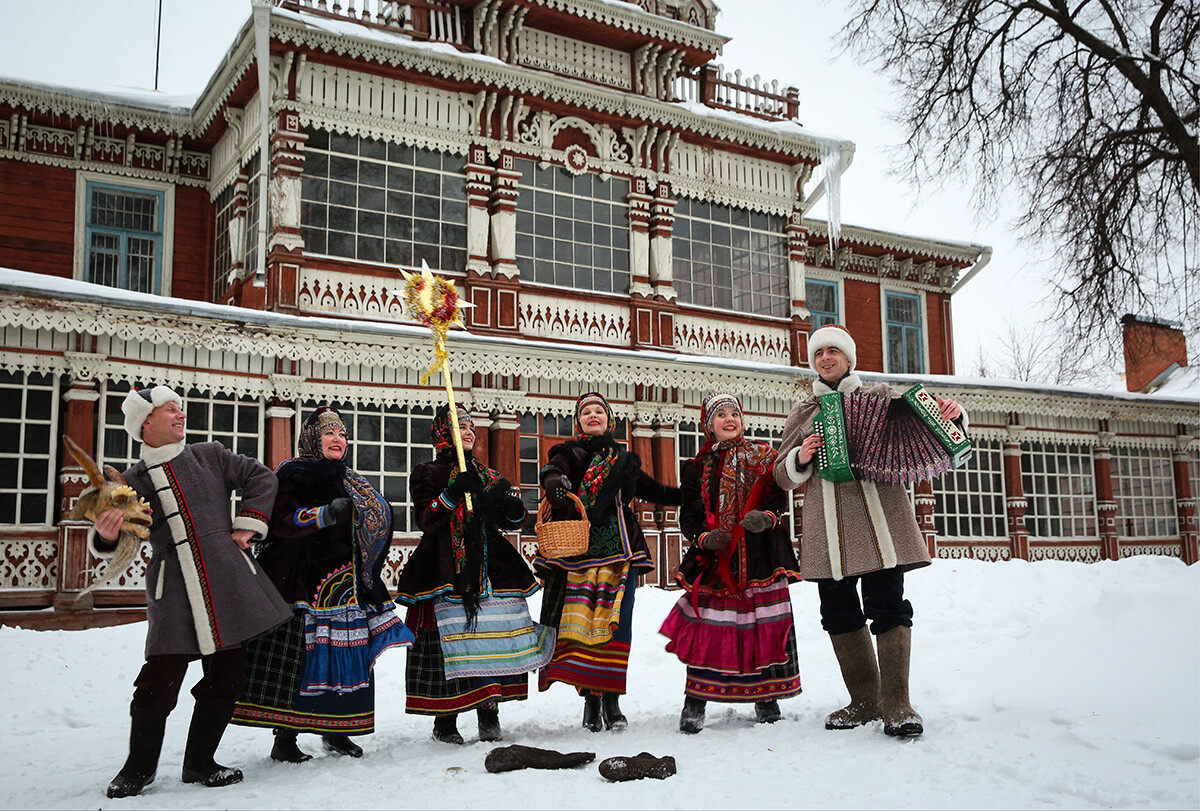 Uzorochye Theater actors singing Christmas Carols. Russia. Ryazan. January 16, 2017.
Uzorochye Theater actors singing Christmas Carols. Russia. Ryazan. January 16, 2017.
This holiday period has pagan roots. In pre-Christian times, Slavs celebrated Kolyada right after the days of the winter equinox, on December 20-22, which signified the change of seasons and the coming of winter. Christianity tried to force pagan traditions out by introducing new religious holidays: that’s why December 25, a date very close to the winter equinox, was “appointed” as Christmas. Svyatki were “tied” to the Christian holiday, but they didn’t lose their ritualistic side.
Svyatki were considered a border period of the year: under paganism – the time between winter and spring; under Christianity – between two important religious holidays. In popular consciousness, such a “time-in-between” allowed people to “kolyadovat” – paying visits while performing ritualistic songs, kolyadki – and even to fortune-tell. Today, public festivities are held on these dates.
January 14 – Old New Year
Unofficially, this holiday marks the end of New Year festivities: in many households, Christmas trees and decorations are removed; festive illumination is dismantled in cities.
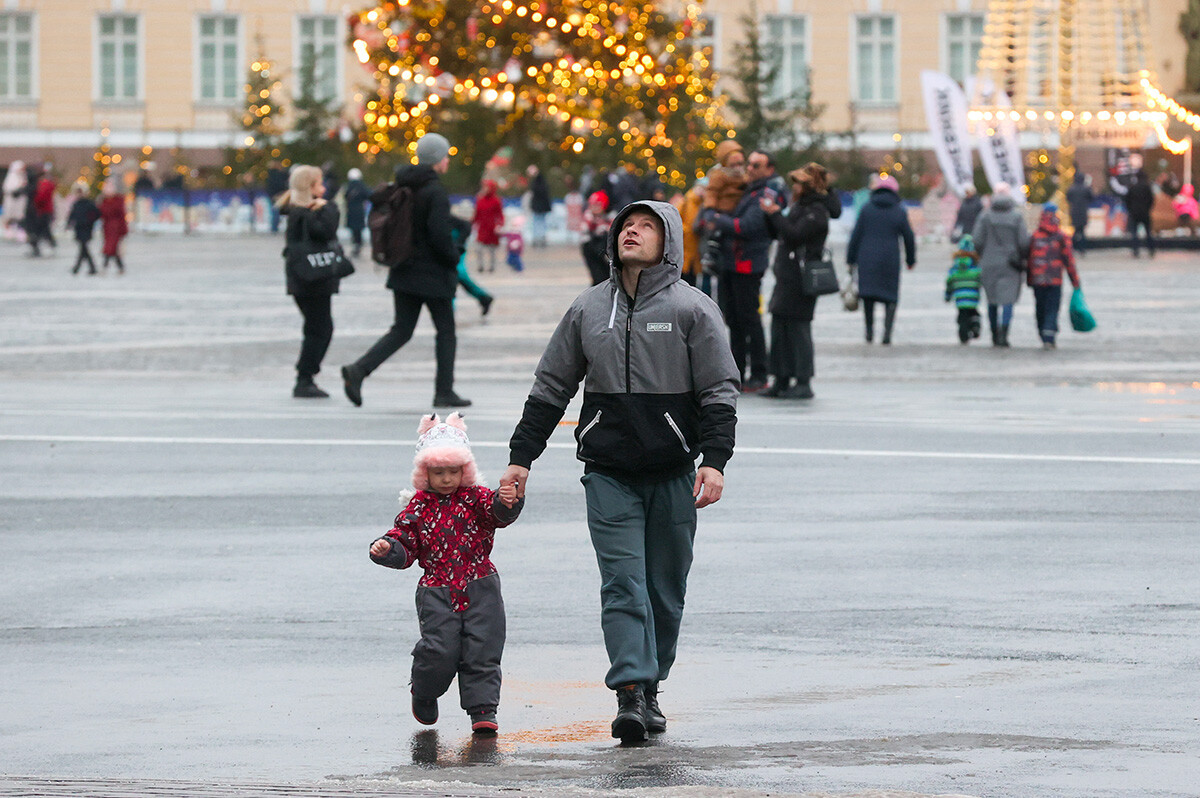
There’s an interesting story about January 14.
In 1699, Tsar Peter the Great reformed the chronology system in Russia. From 1700 onward, he replaced counting time from the Creation of the World (5508 B.C.) with the year of the birth of Christ; he also moved the New Year celebration from September 1 to January 1, which followed the Byzantine tradition. In 1918, the country transitioned to the Gregorian calendar from the Julian calendar and the chronology shifted 13 days forward. So, it turns out that the ‘Gregorian’ New Year of January 1 is the ‘Julian’ December 19. Accordingly, the ‘Julian’ January 1 is the ‘Gregorian’ January 14. So, Old New Year is the New Year celebration according to the Julian calendar or the old calendar.
By the way, the Russian Orthodox Church celebrates the beginning of the church year, or Advent, in accordance with the Byzantine tradition – on September 1 by the Julian calendar (or September 14 by the Gregorian calendar).
January 19 – Epiphany or the Baptism of Jesus
This Christian holiday is dedicated to the baptism of Jesus in the Jordan River: at this time, he, for the first time, presented himself before the world as the Savior and the Holy Trinity appeared before the world.
On this day, across the entire country, ice holes are cut in bodies of water or rivers and Orthodox priests bless the water. The Baptism of Jesus water is considered sacred, able to heal both body and soul. It’s a tradition to plunge in the water three times – in the name of the Holy Trinity. People bless themselves with the sign of the cross before each plunge.
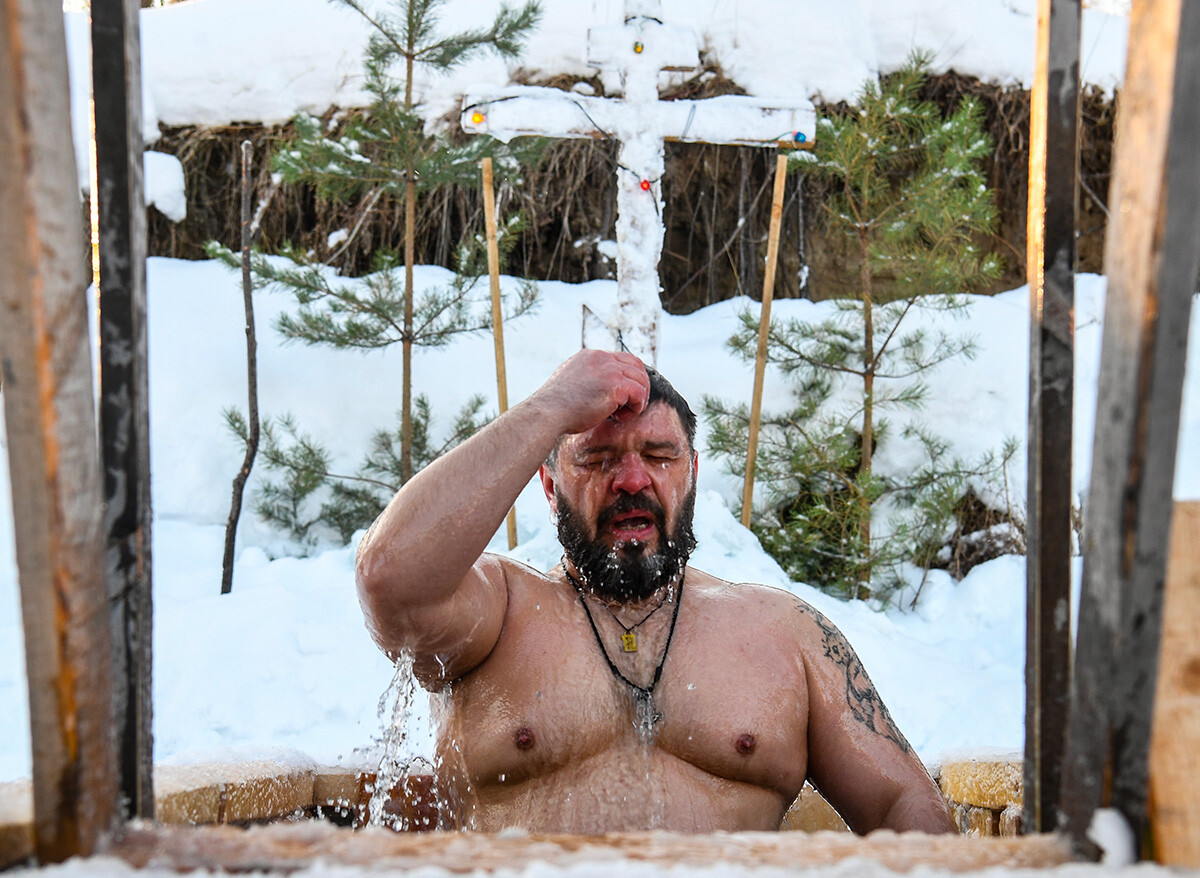 A man takes a dip in the Jordan during the Epiphany celebrations
A man takes a dip in the Jordan during the Epiphany celebrations
An important part of this holiday is its eve – Baptism Eve or Epiphany Eve. On this day, Orthodox believers fast: they are only allowed to eat ‘sochivo’ (a Lenten dish made from grains of wheat or rice with poppy seeds). On Epiphany Eve, religious services are held and the first blessing of water is conducted in churches.
January 25 – Tatiana Day
On this day in 1755, Empress Elizabeth Petrovna signed a decree on the founding of the Moscow University. According to the Julian calendar at the time, it happened on January 12, on the day of the remembrance of Saint Tatiana of Rome.
In 1791, a house church of Martyr Tatiana appeared in one of the outbuildings of the university. People began to consider her the patroness of the educational institution and, later – of all students.
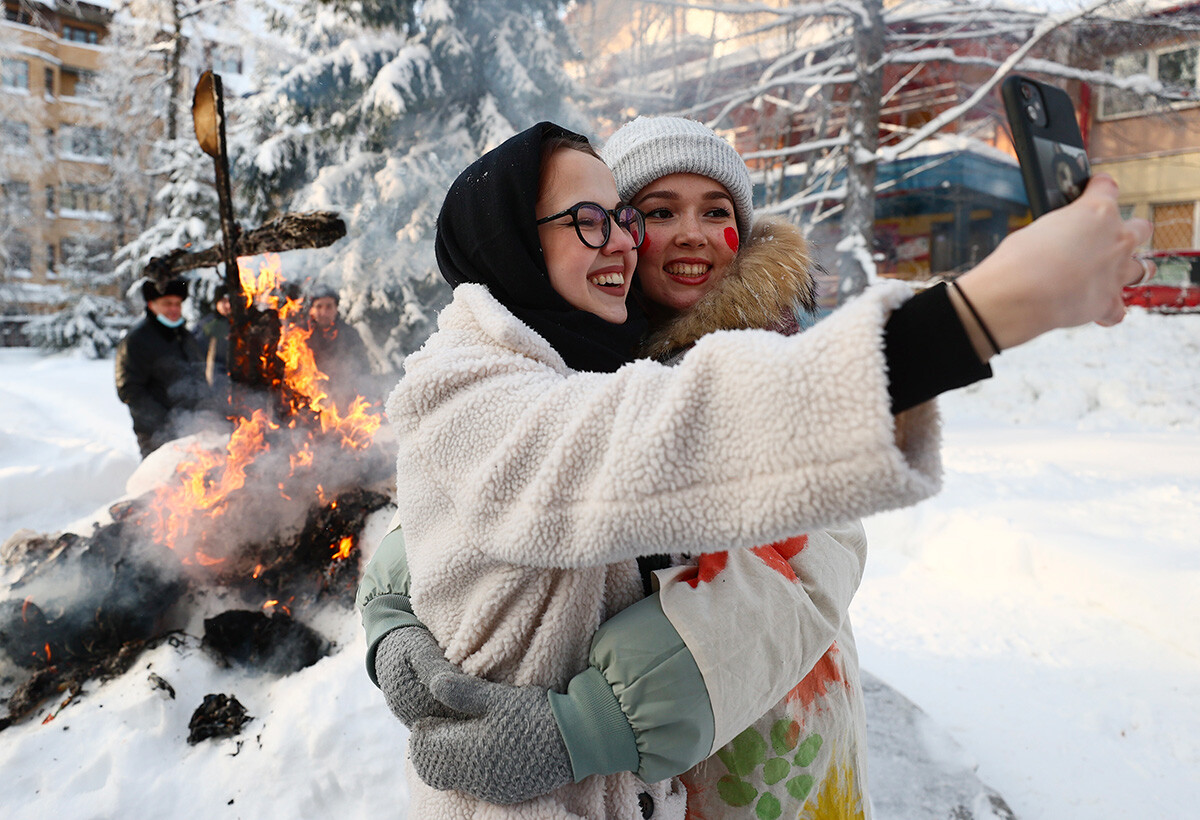 Students burn an exam session straw doll at the TISBI university of Management during Russian Students' Day celebrations
Students burn an exam session straw doll at the TISBI university of Management during Russian Students' Day celebrations
On January 25, 2005, the president of the Russian Federation signed the decree on officially establishing Students Day on January 25.

